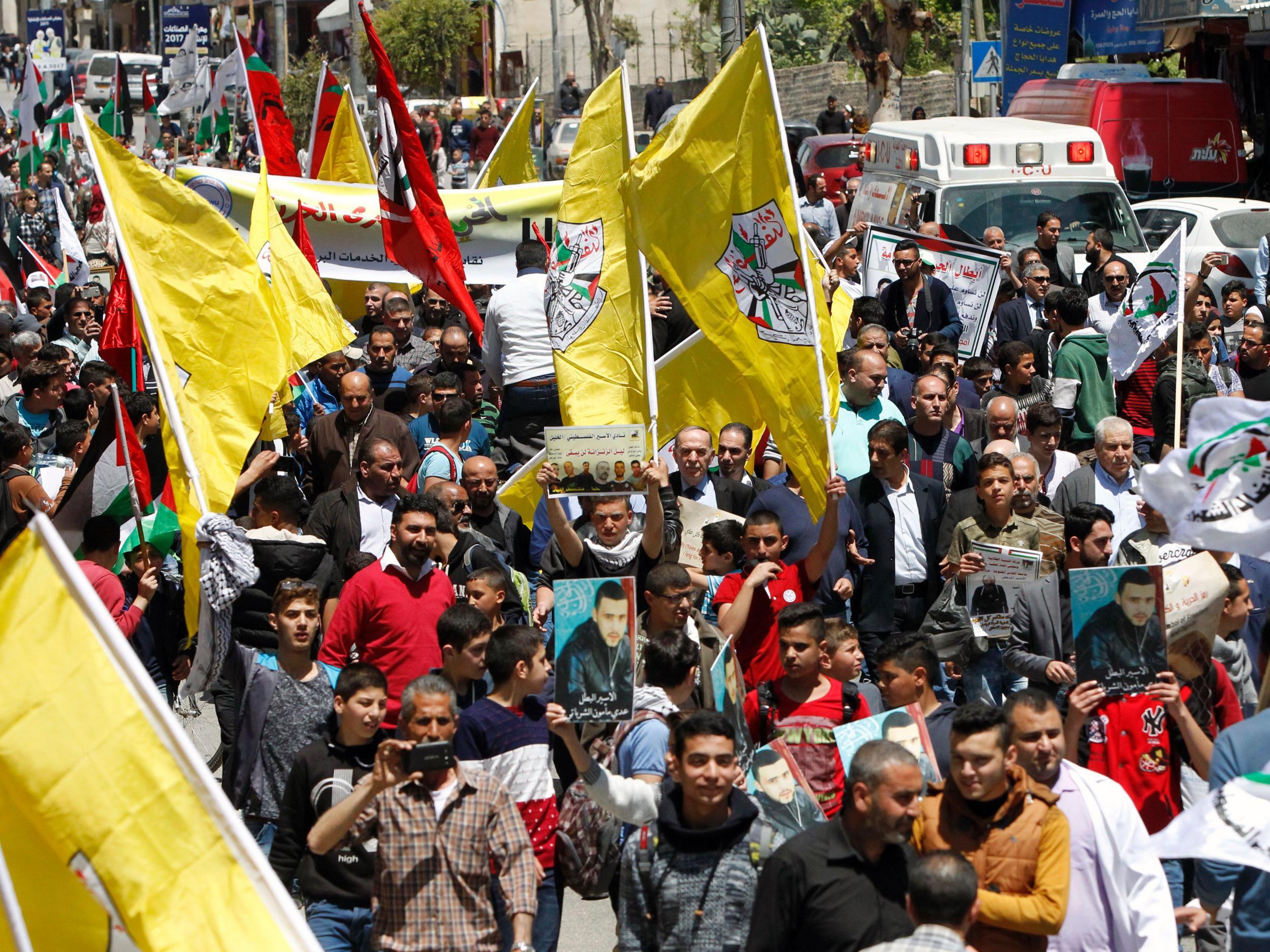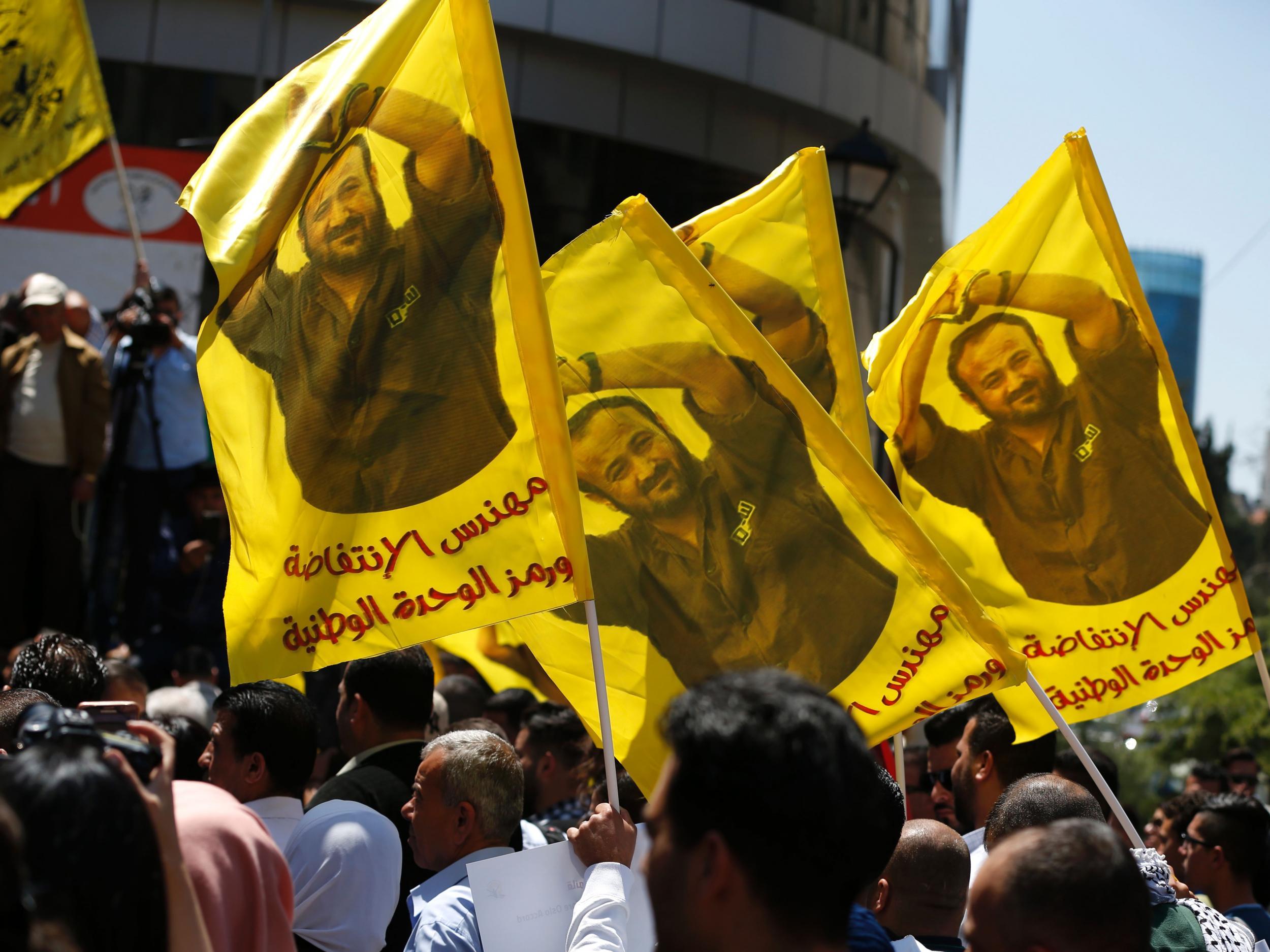Over 1,000 Palestinian prisoners go on hunger strike in Israel
Strike comes as prisoners demand an end to detention without charge

Your support helps us to tell the story
From reproductive rights to climate change to Big Tech, The Independent is on the ground when the story is developing. Whether it's investigating the financials of Elon Musk's pro-Trump PAC or producing our latest documentary, 'The A Word', which shines a light on the American women fighting for reproductive rights, we know how important it is to parse out the facts from the messaging.
At such a critical moment in US history, we need reporters on the ground. Your donation allows us to keep sending journalists to speak to both sides of the story.
The Independent is trusted by Americans across the entire political spectrum. And unlike many other quality news outlets, we choose not to lock Americans out of our reporting and analysis with paywalls. We believe quality journalism should be available to everyone, paid for by those who can afford it.
Your support makes all the difference.More than 1,500 Palestinian prisoners being held in Israeli jails have gone on hunger strike to demand better conditions in one of the largest protests in recent years.
Prisoners are demanding more contact with relatives, better access to medical treatment and an end to the Israeli practice of detention without trial.
Strikers have also said they want access to more television channels and compassionate release for disabled prisoners or those sufferings from chronic illnesses.
Protesters have launched sympathy marches in several major towns in the West Bank, such as Hebron and Ramallah.
Qadoura Fares, an advocate for prisoners' rights, said 6,500 Palestinians are currently held by Israel. Palestinians marked Monday as Prisoners' Day.
Mr Fares said hundreds of prisoners launched a 28-day strike in 2012. In 2014, dozens of detainees held without trial went on hunger strike for two months.
Israel’s controversial “administrative detention” policy sees a varying number of Palestinians held without charge in prisons, often accused of links to militant group Hamas.
Two leading Israeli human rights groups describe the conditions in prisons such as Shikma Prison in southern Israel as “hellish”, with some inmates reportedly shackled to chairs during interrogation and held in solitary confinement in cramped and foul smelling cells no more than two metres long.
Currently 500 Palestinians are being held in this way, according to Mr Fares.
The protest was led by Marwan Barghouti, 58, a leader from the mainstream Fatah movement of the Palestine Liberation Organisation, serving five life terms after being convicted of murder in the killing of Israelis in a 2000-2005 uprising known as the Second Intifada.
In an opinion piece in The New York Times on Monday, Barghouti said a strike was the only way to gain concessions after other options had failed.
"Through our hunger strike, we seek an end to these abuses... Palestinian prisoners and detainees have suffered from torture, inhumane and degrading treatment and medical negligence. Some have been killed while in detention," he wrote.
The strike, if sustained, could present a challenge to Israel and raise tensions between the two sides as the 50th anniversary of the Israeli occupation of the West Bank, East Jerusalem and the Gaza Strip approaches in June.

Israeli troops and settlers pulled out of the Gaza Strip in 2005 but started a naval blockade after Hamas seized control of the territory in 2007.
Peace talks on the creation of a Palestinian state between Israel and Palestinian President Mahmoud Abbas broke down in 2014.
Meanwhile, tensions have been exacerbated by the decision to allow the first new Israeli settlements in the West Bank for two decades.
The UN Secretary-General Antonio Guterres condemned the decision as “threatening peace and undermining the two-state solution”. Building new settlements in the occupied territories is considered a violation of international law.
Israel denies Palestinian inmates are mistreated and Public Security Minister Gilad Erdan said the Barghouti-led protest was "prompted by internal Palestinian politics and therefore includes unreasonable demands".
Opinion polls suggest Barghouti is the top contender to succeed Mr Abbas as president.
Palestinians consider those held in Israeli jails as national heroes. Long-term mass hunger strikes by Palestinian prisoners are rare, but in past cases of individual inmates who stopped eating for weeks, detention terms were shortened or not renewed after they were hospitalised in critical condition.
Mr Erdan said a field hospital would be erected next to one prison - an apparent move to preempt transfers to civilian medical facilities, which could draw wider media attention.
Additional reporting by agencies